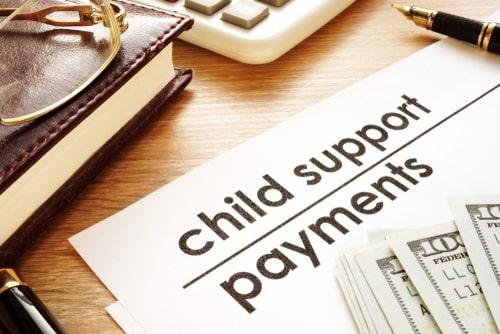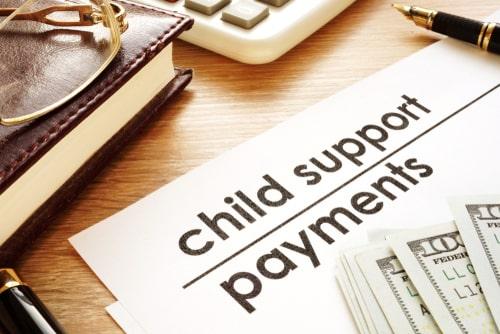Recent Blog Posts
How Are Child Support Payments Calculated Under Illinois Law?
 When parents get divorced, they will need to address multiple types of financial issues, and child support is an area that will most likely be a significant concern. While parents will want to ensure that their children’s needs will be provided for, they will also need to make sure they will have the financial resources to meet their own needs. By understanding the procedures used to calculate child support payments and working with an attorney who can advocate for their rights and financial interests, parents can make sure this issue will be addressed properly.
When parents get divorced, they will need to address multiple types of financial issues, and child support is an area that will most likely be a significant concern. While parents will want to ensure that their children’s needs will be provided for, they will also need to make sure they will have the financial resources to meet their own needs. By understanding the procedures used to calculate child support payments and working with an attorney who can advocate for their rights and financial interests, parents can make sure this issue will be addressed properly.
Guidelines for Calculating Child Support
The method used to determine an appropriate amount of child support has changed in recent years to address the fact that in most families, both parents work outside the home and earn income used to support themselves and their children. Currently, the guidelines for determining child support provided in Illinois’ laws take the income earned by both parents into account.
How Can I Protect My Family Business During My Divorce?
 Couples who choose to get divorced will need to address multiple legal and financial issues, including making decisions about the division of marital property. While addressing property ownership will be an important aspect of every divorce, it can become more complicated in high net worth divorce cases, including those where a spouse is a business owner. Family businesses can be an especially complex issue in an Islamic divorce, since the close relationships between family members and business associates may be affected by the end of a couple’s marriage. Spouses will need to be sure their rights and financial interests are protected in the decisions made. Business owners will want to determine how they can protect a family business and ensure that it can continue operating smoothly and successfully during and after their divorce.
Couples who choose to get divorced will need to address multiple legal and financial issues, including making decisions about the division of marital property. While addressing property ownership will be an important aspect of every divorce, it can become more complicated in high net worth divorce cases, including those where a spouse is a business owner. Family businesses can be an especially complex issue in an Islamic divorce, since the close relationships between family members and business associates may be affected by the end of a couple’s marriage. Spouses will need to be sure their rights and financial interests are protected in the decisions made. Business owners will want to determine how they can protect a family business and ensure that it can continue operating smoothly and successfully during and after their divorce.
Options for Protecting a Family Business
How Does Illinois Law Address Relocation by a Parent After Divorce?
 It is common for people’s lives to change after they get divorced, and these changes may prompt a move to a new city or even another area of the country. In some cases, a person may be pursuing job opportunities or wish to relocate to live near their family members. While a person will no longer need to consult with their ex-spouse when making the decision to move, their relocation could potentially affect matters related to child custody. If the parent who is moving has primary custody of the couple’s children, this might mean that the other parent would be able to spend less time with their kids, and it may limit their ability to be involved in decisions about children’s upbringing. Because of this, one parent may object to a planned relocation by the other parent. It is important to understand how the laws in Illinois address these situations.
It is common for people’s lives to change after they get divorced, and these changes may prompt a move to a new city or even another area of the country. In some cases, a person may be pursuing job opportunities or wish to relocate to live near their family members. While a person will no longer need to consult with their ex-spouse when making the decision to move, their relocation could potentially affect matters related to child custody. If the parent who is moving has primary custody of the couple’s children, this might mean that the other parent would be able to spend less time with their kids, and it may limit their ability to be involved in decisions about children’s upbringing. Because of this, one parent may object to a planned relocation by the other parent. It is important to understand how the laws in Illinois address these situations.
Parental Relocation in Illinois
According to the Illinois Marriage and Dissolution of Marriage Act (IMDMA), a move by a parent who lives in DuPage County or other counties in the greater Chicago area is considered to be a relocation if their new home will be at least 25 miles away from their current home. If the couple’s children live with the parent who is planning for the majority of the time with the couple’s children, or if the parents have equal amounts of parenting time, the other parent must be provided with written notification at least 60 days prior to the date of the planned relocation. If this is not feasible, such as if a move is planned within 60 days, a parent must provide notification at the earliest practical date.
Are Divorced Parents Required to Pay Children’s College Expenses?
 When married parents choose to split up, child support is one of the primary issues they will need to address. Those with younger children will likely be focused on making sure child support will address daily needs, such as providing children with food, shelter, and clothing. However, parents of teenagers may be looking at what will happen as their children grow up and leave home. Parents will usually want to make sure their children can receive the education they need to pursue opportunities in their chosen career. Because of this, divorcing parents will need to consider how they will contribute to their children’s college expenses.
When married parents choose to split up, child support is one of the primary issues they will need to address. Those with younger children will likely be focused on making sure child support will address daily needs, such as providing children with food, shelter, and clothing. However, parents of teenagers may be looking at what will happen as their children grow up and leave home. Parents will usually want to make sure their children can receive the education they need to pursue opportunities in their chosen career. Because of this, divorcing parents will need to consider how they will contribute to their children’s college expenses.
Non-Minor Support in Illinois
While child support is paid until a child graduates from high school or turns 18 (whichever happens later), divorced parents in Illinois also have the obligation to help their children pay educational expenses when attending college. When creating a divorce settlement, parents may agree on how much they will each contribute, or the court may order either or both parents to pay a certain amount based on the incomes they earn and the property they own. When determining an appropriate amount, the court may also consider the financial resources available to the child, such as college savings accounts or financial aid.
Dividing Valuable and Unique Collections in a Divorce
 Going through a divorce in Illinois will require all marital property to be accurately classified and divided according to the theory of equitable distribution. Yet certain types of property can pose complications, and it can be necessary to take additional steps to determine how particular assets should be classified and valued. Indeed, dividing valuable and unique collections in a divorce can result in complexities that may require assistance from expert appraisers in addition to in-depth investigations to determine whether the property should be classified as a separate or marital asset. Valuable and unique collections can range from art and rare book collections to antique jewelry and furniture in the couple’s home.
Going through a divorce in Illinois will require all marital property to be accurately classified and divided according to the theory of equitable distribution. Yet certain types of property can pose complications, and it can be necessary to take additional steps to determine how particular assets should be classified and valued. Indeed, dividing valuable and unique collections in a divorce can result in complexities that may require assistance from expert appraisers in addition to in-depth investigations to determine whether the property should be classified as a separate or marital asset. Valuable and unique collections can range from art and rare book collections to antique jewelry and furniture in the couple’s home.
Our DuPage County property division attorneys want to provide you with some of the information you will need as you consider the divorce process and the division of distinctive collections or collectible assets that may be classified as marital property under the Illinois Marriage and Dissolution of Marriage Act (IMDMA).
Will the Court Deviate from the Child Support Guidelines?
 Any parents who are going through a divorce in Oakbrook Terrace, Illinois, and share minor children from their marriage should also be thinking about child custody and child support under the Illinois Marriage and Dissolution of Marriage Act (IMDMA). You might already know that, in terms of child support, Illinois follows an “income shares” model for calculating child support. With this model, the court uses a general formula to determine the total child support obligation for both parents, which is then shared based on their individual incomes and other relevant factors. Yet there are a variety of reasons that one or both parents might want the court to deviate from the existing Illinois Child Support Guidelines, and you might be wondering if the court could deviate from the guidelines in your case.
Any parents who are going through a divorce in Oakbrook Terrace, Illinois, and share minor children from their marriage should also be thinking about child custody and child support under the Illinois Marriage and Dissolution of Marriage Act (IMDMA). You might already know that, in terms of child support, Illinois follows an “income shares” model for calculating child support. With this model, the court uses a general formula to determine the total child support obligation for both parents, which is then shared based on their individual incomes and other relevant factors. Yet there are a variety of reasons that one or both parents might want the court to deviate from the existing Illinois Child Support Guidelines, and you might be wondering if the court could deviate from the guidelines in your case.
While there are only limited circumstances in which the court is likely to deviate from guidelines in determining the child support obligation as part of a divorce, our Oakbrook Terrace child support attorneys can discuss the likelihood of a deviation occurring in your particular case.
What Is Conciliation in a DuPage County Divorce?
 Divorces in Oakbrook Terrace and throughout DuPage County are governed by the Illinois Marriage and Dissolution of Marriage Act (IMDMA). Under the IMDMA, you may already know that the only way to get divorced is through a no-fault divorce path. In other words, Illinois no longer recognizes fault-based grounds for divorce. Rather, to obtain a divorce, the party who files a petition for the dissolution of marriage must plead that “irreconcilable differences have caused the irretrievable breakdown of the marriage,” and the court must determine that “efforts at reconciliation have failed or that future attempts at reconciliation would be impracticable and not in the best interests of the family.”
Divorces in Oakbrook Terrace and throughout DuPage County are governed by the Illinois Marriage and Dissolution of Marriage Act (IMDMA). Under the IMDMA, you may already know that the only way to get divorced is through a no-fault divorce path. In other words, Illinois no longer recognizes fault-based grounds for divorce. Rather, to obtain a divorce, the party who files a petition for the dissolution of marriage must plead that “irreconcilable differences have caused the irretrievable breakdown of the marriage,” and the court must determine that “efforts at reconciliation have failed or that future attempts at reconciliation would be impracticable and not in the best interests of the family.”
How can you show the court that you have met the requirement of irreconcilable differences, and how does this requirement relate to the term “conciliation” as it is used in the IMDMA? Our Oakbrook Terrace divorce attorneys have more information to help you understand no-fault divorce and the possibility of conciliation.
What Should I Do If I Think My Spouse is Hiding Assets?
 When you are going through a divorce in DuPage County, both you and your spouse will be required to complete a financial affidavit that has been approved by the Illinois Supreme Court. In the financial affidavit, you will provide detailed information about your assets and debts, including funds in accounts, prepaid debit cards, stocks, bonds, investment accounts, mutual funds, real estate, motor vehicles, business interests, life insurance policies, retirement benefits, income tax refunds, lawsuit recoveries, valuable collectibles, and any other assets. The financial affidavit requires you to provide information about assets and debts — as well as any assets sold or transferred worth more than $1,000 in the last two years — that may be classified either as separate or marital property.
When you are going through a divorce in DuPage County, both you and your spouse will be required to complete a financial affidavit that has been approved by the Illinois Supreme Court. In the financial affidavit, you will provide detailed information about your assets and debts, including funds in accounts, prepaid debit cards, stocks, bonds, investment accounts, mutual funds, real estate, motor vehicles, business interests, life insurance policies, retirement benefits, income tax refunds, lawsuit recoveries, valuable collectibles, and any other assets. The financial affidavit requires you to provide information about assets and debts — as well as any assets sold or transferred worth more than $1,000 in the last two years — that may be classified either as separate or marital property.
The court will use the financial affidavit and other supporting documentation to determine which assets and debts should be classified as separate property (and thus not distributed in the divorce) and which assets and debts should be classified as marital property and divided according to the terms of equitable distribution. Both parties are required to fill out the financial affidavit fully and accurately. Yet what happens if one spouse intentionally avoids identifying assets and may be trying to conceal property? Our DuPage County divorce lawyers want to provide you with more information.
Penalties for Failure to Pay Child Support
 If you are going through a divorce and you share minor children with your spouse, your divorce case will include the allocation of parental responsibilities and a child support determination. Under the Illinois Marriage and Dissolution of Marriage Act (IMDMA), courts use an “income shares” model to determine the child support obligation. Under this method, both parents are responsible for paying a portion of the child support obligation based on their individual income and other factors such as the total number of overnights for which they provide caretaking functions for the child. With the income shares model, the court combines both parents’ incomes and uses that figure to determine the total child support obligation based on the Illinois guidelines. Then, each parent is responsible for paying a percentage of that total obligation.
If you are going through a divorce and you share minor children with your spouse, your divorce case will include the allocation of parental responsibilities and a child support determination. Under the Illinois Marriage and Dissolution of Marriage Act (IMDMA), courts use an “income shares” model to determine the child support obligation. Under this method, both parents are responsible for paying a portion of the child support obligation based on their individual income and other factors such as the total number of overnights for which they provide caretaking functions for the child. With the income shares model, the court combines both parents’ incomes and uses that figure to determine the total child support obligation based on the Illinois guidelines. Then, each parent is responsible for paying a percentage of that total obligation.
Many different situations can arise that can result in a parent being unable to pay his or her portion of the child support obligation, but it is critical to understand that failure to pay child support can have serious consequences. Whenever you have questions or concerns about child support, you should seek advice from a DuPage County family lawyer to ensure that you are not subject to penalties under Illinois law.
Common Issues in High Asset Divorces
 High asset divorces, or high net worth divorces, in DuPage County often come with their own complications and issues that make them distinct from more traditional or straightforward divorce cases. Whether you are currently in a marriage in which one of the spouses was the primary earner, or both spouses together have been high earners during the marriage, it is critical to learn more about the particularities of high net worth divorces in Oakbrook Terrace and throughout DuPage County.
High asset divorces, or high net worth divorces, in DuPage County often come with their own complications and issues that make them distinct from more traditional or straightforward divorce cases. Whether you are currently in a marriage in which one of the spouses was the primary earner, or both spouses together have been high earners during the marriage, it is critical to learn more about the particularities of high net worth divorces in Oakbrook Terrace and throughout DuPage County.
At Farooqi & Husain Law Office, we know how important it is to have an experienced and dedicated attorney on your side who understands your situation. Our firm has been representing members of the DuPage County Muslim community for years, and our Oakbrook Terrace family law attorneys are here to assist you with your case. In the meantime, the following are some of the common issues that you might anticipate in a high asset divorce in Illinois.


 630-909-9114
630-909-9114




